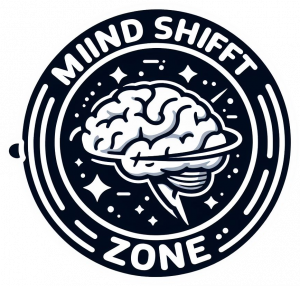Returning to work after a significant break is a journey that countless individuals find daunting and overwhelming. The prospect of updating a neglected resume, fine-tuning your digital presence, mastering the art of interviews, and rebuilding your confidence can be nothing short of intimidating.
Imagine a world where you not only conquer these challenges but also thrive in your return to the professional realm. The good news is that it’s entirely possible, and the key lies in one word: coaching. In this blog, we’ll delve into the transformative power of coaching when returning to work.
Whether you’re a parent reentering the workforce after raising children, someone recovering from illness or injury, or anyone seeking a fresh start, this article is your roadmap to a triumphant return.
Why Employees Leave Their Jobs: Understanding the Motivations
It is believed that 43% of highly qualified women voluntarily leave the workforce after having children. One in three women who left work between the ages of 41-55 did so to care for a parent or another family member. Meanwhile, 17% of women gave up their role because they believed their work was not satisfying or meaningful, and 6% felt the workload was too overwhelming. Most importantly, the report found that 93% of women who left their jobs did fully intend to return to their careers; however, only 40% managed to re-enter the full-time workforce.
In contrast, 29% of men who leave their jobs do so to change careers. A further 25% take a break to earn a degree or pursue other training. Meanwhile, only 12% take a step back for family reasons.
Common Reasons For Leaving Job
Women:
- Childcare (43%)
- Care for aging parents or other family members (33%)
- Dissatisfaction with job (17%)
- Overwhelming workload (6%)
Men:
- Change careers (29%)
- Pursue education or training (25%)
- Family reasons (12%)
Corporate Coaching Programs: A Solution for Returning Employees
Did you know that some companies have introduced coaching programs to help manage leaves and returns? According to Forbes, Ernst & Young, MetLife, and Etsy are among the companies that have implemented programs implementing coaching when returning to work. The purpose of these programs is to help individuals clarify expectations and create action plans. Interestingly, Ernst & Young found there was a 14% increase in women returning to work from maternity leave after their liaison with a coach. The program is offered to men taking paternity leave too.
National Initiatives for Women Returning to Work

Outside of the office, several nationwide initiatives have been established to help women return to work after kids. For example, The Mom Project is a community platform that links up with companies to design better workplaces for moms and helps new mothers remain active in the workforce after childbirth.
Resources like the On Ramp Fellowship (for lawyers) and Back to Work 50+ (for older job candidates) are also available to help make the return to the workforce straightforward and seamless.
How to re-enter the workforce?
A logical first step when returning to work is to enlist the help of a professional to help create an action plan. That’s why coaching when returning to work can give you that extra advantage already before you start applying for jobs.
Dr Tara Trout, the founder of Skyline Psychological Services, specialises in working with young professionals, encouraging them to improve their interpersonal interactions and leadership skills. Dr Trout believes that reconnecting is the first step towards kick-starting your career again.
“Reconnect with previous employers and coworkers who know and appreciate your work,” she advises. “They might have some leads or give great recommendations to potential new employers”.
How to Find a Career Coach: Your Way to Success
There are many ways that a coach can assist you in navigating the transition back to work.
“A career coach can help you deal with the change process and establish a new normal,” says Nicole Wood, CEO of coaching company Ama La Vida. “When someone makes a drastic life change like going back to work after kids, exiting the military, or retiring from a long career, it can be a shock to their identity. For so long, their identity has been tied to their previous role. And so a career coach can help to redefine their purpose and get excited about this new journey.“
In this increasingly digital-focused age, one of the most important steps that will be part of your coaching when returning to work is to ensure that you are visible to recruiters online. It is vital that you are ‘marketing’ yourself and your skillset in an engaging and professional manner.
A recent article posted by employment website Glassdoor.com revealed that 80% of recruiters would research and vet a candidate’s social media and LinkedIn, and according to a survey, 46% of recruiters said they often eliminate a person based on their online presence alone.
Online Visibility and Branding: Standing Out in the Digital Age
Did you know that a staggering 590 million people have accounts on LinkedIn? David Petherick, aka Doctor LinkedIn, is a leading Linkedin expert. He says that missing out on this opportunity to showcase your skills will impact the opportunities afforded to you.
“Invisible, inactive people don’t get invited to job interviews, don’t get shown new opportunities, and don’t get to prove their ability,” Petherick says. “Your offline networking is still important, but online you need to be professional in your approach. And active is a key element here – a slick-looking profile on LinkedIn or Twitter is all well and good, but it’s important to be regularly sharing, commenting, and adding value for your network to build credibility.“
Optimizing Your LinkedIn Profile For Job Search: Your Digital Calling Card
Petherick advises professionals at every stage of their career on how best to present their experience on LinkedIn. He is emphasising the importance of an updated Linkedin profile:
“A LinkedIn profile needs many factors to have real strength, but if I had to choose one distinguishing factor, it would be writing an effective summary”. Petherick says. “Aside from your headline, the summary may be the only part of your profile that gets read. A good summary is a combination of a business introduction, an elevator pitch, and a brief personal history. As well as working like telling a story, and acting like a smile and a wave across a room. It’s an opportunity to start a conversation. If you sound interesting and open, people will respond. Plus, you can make it easier to connect, call, email or click through on media or web links included in your summary. Missing out on a summary is like meeting someone, but not actually speaking to them or making any eye contact.“
Once you’ve got the summary perfected, don’t just focus on yourself and your achievements on your LinkedIn profile.
“Talk about the real problems you can help solve for real people. Focus on the pain you can remove from a process,” Petherick advises. “Cite specifics about how you improved something. Answer the very common question that every viewer actually has in mind when viewing a profile: what can this person do to help me?“
Get your photo taken
Your professional photo, too, should showcase you in the best light: literally and figuratively speaking.
“Remember to smile,” Petherick says. “The human brain process images up to 42,000 times faster than words. So a clear, well-lit photo where you look welcoming and confident, has a deep subconscious impact. You should invest in a professional headshot because you only get one chance to make a first impression.“
Interview Preparation and Coaching: Building Confidence for Success

A strong, in-person first impression and a winning interview are still your calling cards in the working world. Enlisting the aid of a dedicated interview coaching when returning to work can be an invaluable investment.
Amie Thompson is the Founder and Head Coach of Sound Interview. They offer interview and resume coaching when returning to work via Skype. Thompson acknowledges that the interview process can be a “drain on job seekers’ confidence”.
“It’s hard to get feedback from the hiring managers. And once the interview is over, most people can think of one hundred things that they wished they would have said differently. Getting stuck in this cycle can be frustrating,” Thompson states.
Thompson provides immediate and direct feedback to clients on what they are doing well and what they can tweak. This ultimately provides them with a repertoire of meaningful ‘stories’ and points that they can tell during an interview. The purpose of this is to demonstrate their qualifications for the position.
“Stories are important because they show employers, with evidence, that a candidate can do the work. Instead of just telling the hiring manager they have great attention to detail or are an awesome team player,” Thompson says.
“I always take some time to focus on the most hated question – “Tell me about yourself” – and provide custom feedback to the client to address areas they can improve,” Thompson continues. “I can also provide coaching on building rapport, body language, asking questions, and even salary negotiation depending on a candidate’s needs.“
Preparing for the Interview: Strategies for Success
When it comes to preparing for the all-important first interview, Thompson recommends assuming that the hiring managers like you and aren’t out to trick you.
“Be friendly,” Thompson offers. “Job seekers often forget that they have power during an interview too. They get to check out the hiring manager and figure out if the company will offer work and an environment that they’ll enjoy. Prepare some strong stories that you can tell during the interview and try to recall any specific metrics that can show results. Be sure to tell them that you’re excited and interested in the job.”
“Get to know the hiring manager as a person,” Thompson says. “One of the best ways to build a strong rapport is to find some common ground that you can use to connect with the other person. Small talk before the interview is critical. Asking about upcoming weekend plans or the last weekend can be an excellent way to get someone to open up. From there, show interest with open-ended questions. Hiring managers typically don’t love interviewing either and will appreciate the chance to talk about things that they enjoy.”
The Path to Returning to Work: Embracing Change with Confidence
Returning to work is often the biggest challenge that people will face in their professional life. Remember that the famous saying, ‘No man is an island’ rings particularly true here. Coaching when returning to work can give you the confidence to go find your new dream job. At every step of the way, one of our professional career coaches can help make the transition back to work as plain sailing as possible.











